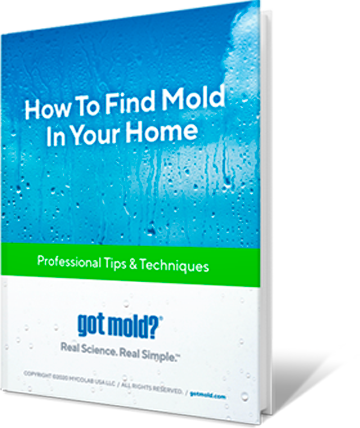
I sat down to write this post without knowing that a new Lyme Disease-causing bacteria was recently discovered by Mayo Clinic researchers. It just so happened to show up in my newsfeed as I began typing.
Apparently, some of the symptoms are different, but the good news is the treatment is the same. Of course, if you know anything about Lyme, you know that the treatment can be anything but straightforward, ranging from a round of antibiotics to myriad other methods, depending upon your genotype and other confounding variables, including possible mold exposure. The treatment process can be a matter of months to a matter of years. Some people recover quickly and move on. Others seem to suffer forever, with symptoms that mirror multiple sclerosis, and other nasty diseases you wouldn’t wish on your worst enemy.
In my time as a mold inspector, a direct connection between Lyme disease and mold-related illness was apparent time and time again. It’s hard enough to deal with one of these issues, let alone both at the same time and with each possibly amplifying the other. It’s a complicated subject, and though the science behind it seems to be emerging more quickly than ever, there remain naysayers in the medical community who don’t believe Lyme is complicated at all and dispute the validity of something known as Chronic Lyme Disease. Here’s an example of the rhetoric from that camp.
This is a very personal issue for me, and the main reason GOT MOLD? exists. In the early 90’s, as a child, I was diagnosed with Lyme while living in a moldy home. I gained weight, developed terrible brain fog, candida, fatigue, and a whole host of other life-altering symptoms. It’s taken me 20 years to overcome many of them, while a few still linger. This was long before mold illness or Lyme disease were taken seriously. There were certainly no such things as mold inspectors and mold remediators. Lyme doctors were marginalized and attacked back then. My doctor, Dr. John Bleiweiss, an early Lyme disease pioneer, committed suicide after being sanctioned by the AMA, well aware of what the road ahead involved for him and his family. It was terrible.
 Lyme is a tough disease. It’s tough to diagnose properly since it mimics other diseases. It’s tough to treat since the offending bacteria have developed some pretty effective defenses and know how to hide. The symptoms can be brutal, oftentimes creating a whole host of other sensitivities to things as basic as light and fragrances. And because it’s a biotoxin-based illness, it works against you in the case of mold exposure, where the two amplify one another.
Lyme is a tough disease. It’s tough to diagnose properly since it mimics other diseases. It’s tough to treat since the offending bacteria have developed some pretty effective defenses and know how to hide. The symptoms can be brutal, oftentimes creating a whole host of other sensitivities to things as basic as light and fragrances. And because it’s a biotoxin-based illness, it works against you in the case of mold exposure, where the two amplify one another.
In other words, if you fall within the 24% of the population who has a hard time processing these toxins (likely due to your genetics) you’re in for a real treat.
Dealing with a mold problem can be quite a challenge, especially if it’s making you ill. The costs can be daunting and finding competent medical care is extremely difficult for many. The initial investigations are wrought with worry, and the work itself is akin to a home invasion. It doesn’t help that people often think you’re crazy if you point to mold as the source of your woes, and the whole process can make you crazy even if you aren’t already. It’s not uncommon for mold-sensitive people to set up tents in their yards while remediation is done, or to disrupt their normal routines in other ways while a solution is sought. And this is all happening while you’re probably too tired to take out the garbage.
The bottom line is, if you are suffering from Lyme disease, and are also concerned about a possible mold problem in your home, the former may not get any better until you remove the mold. Indeed, it may get worse. And if you have Lyme but don’t think you have a mold problem, it pays to make sure. Mold could be silently undermining your efforts at treating Lyme (while simultaneously causing illness in other ways). Testing is key and this is where GOT MOLD? and the GOT MOLD? Test Kit can help. Stop worrying. Start knowing.


My youngest daughter was chronically ill for over a year, before a friend told me Toxic Mold. My friend had developed asthma over the years and said the musty/ moldy basement air would effect her MS. After purchasing a test for our home, we too discovered we had a mold problem in the HVac system. After replacing the filters, leaky compressor and cleaning the system, my daughter does not have any health issues and everyone seems to be sleeping much better 🙂
I was Diagnosed with Lyme in 2009 although I had it for years before that. A test came back yesterday that also showed me I’ve got mold illness. My issues are now neurological. And I’m struggling actually to understand what actually needs to be done. My home got storm damage from Ida. I will be having the back room redone that got the storm damage and I also had some water damage in the basement. I’m thinking to sell my home in the spring. Want to fix it up and move out also within two months. And then I’ll come back to sell it in the spring. In the meanwhile I’m wondering how to detox from this. I do have an herbalist that’s treating me for Lyme and she says she can help me detox from the mold too I hope that’s true.